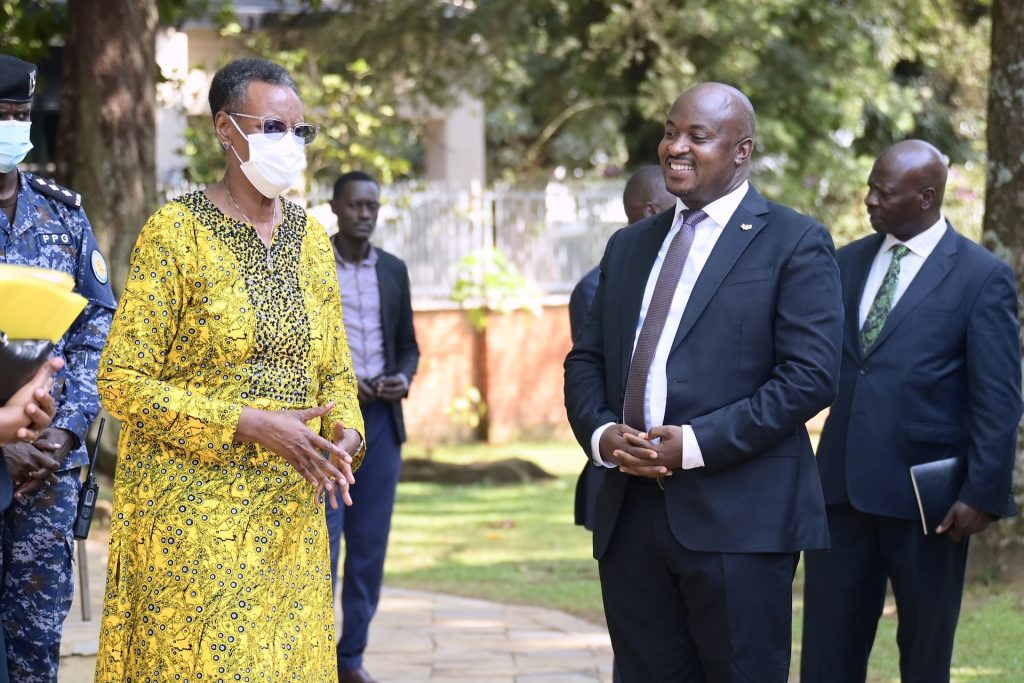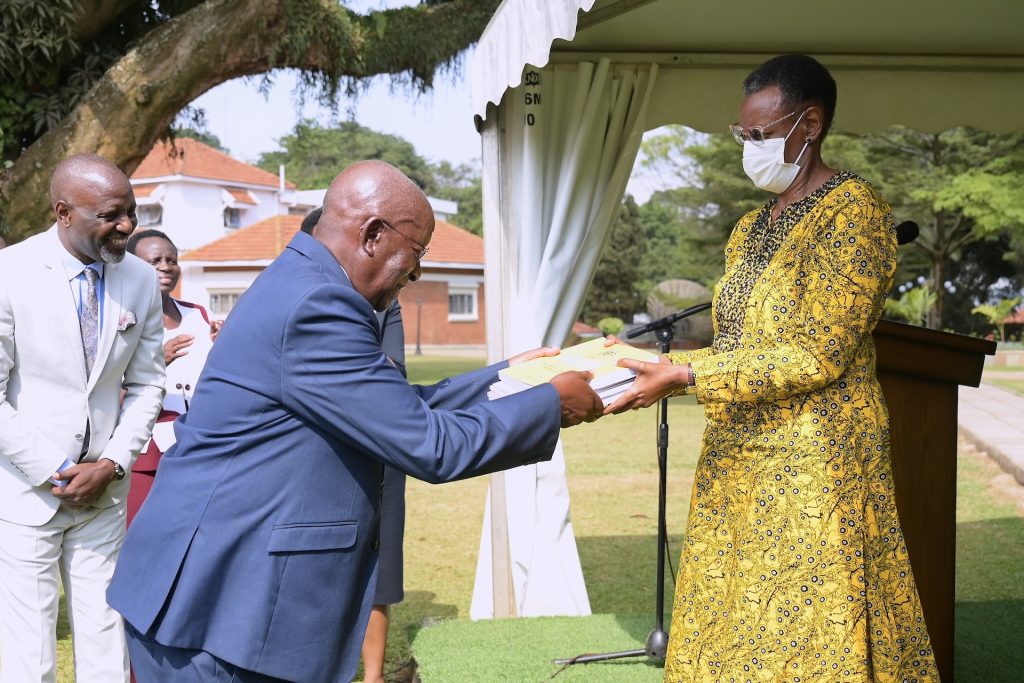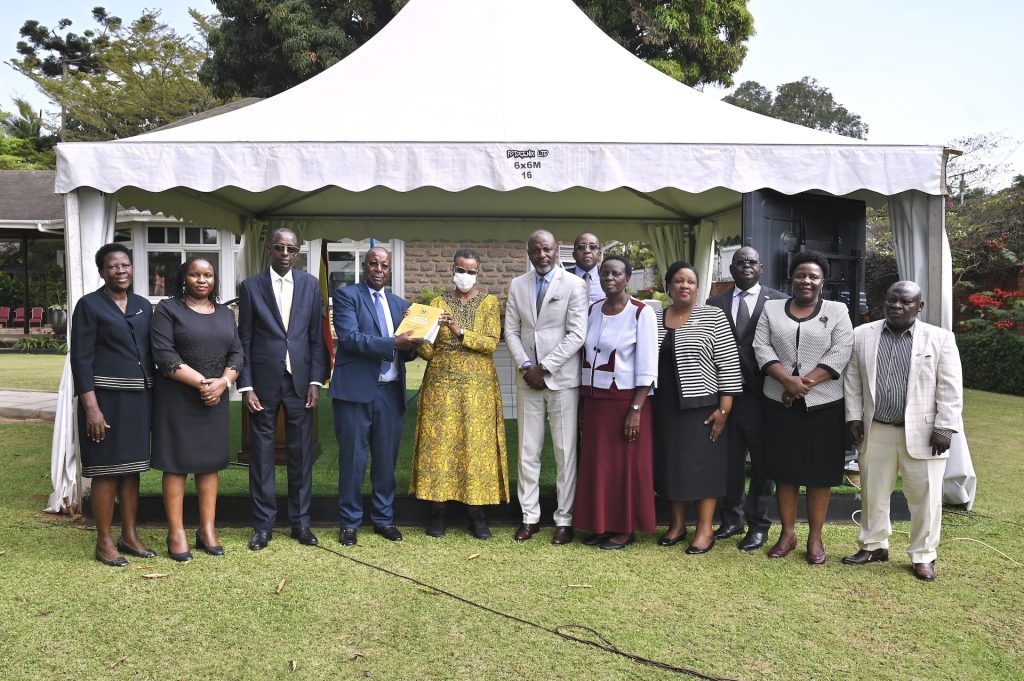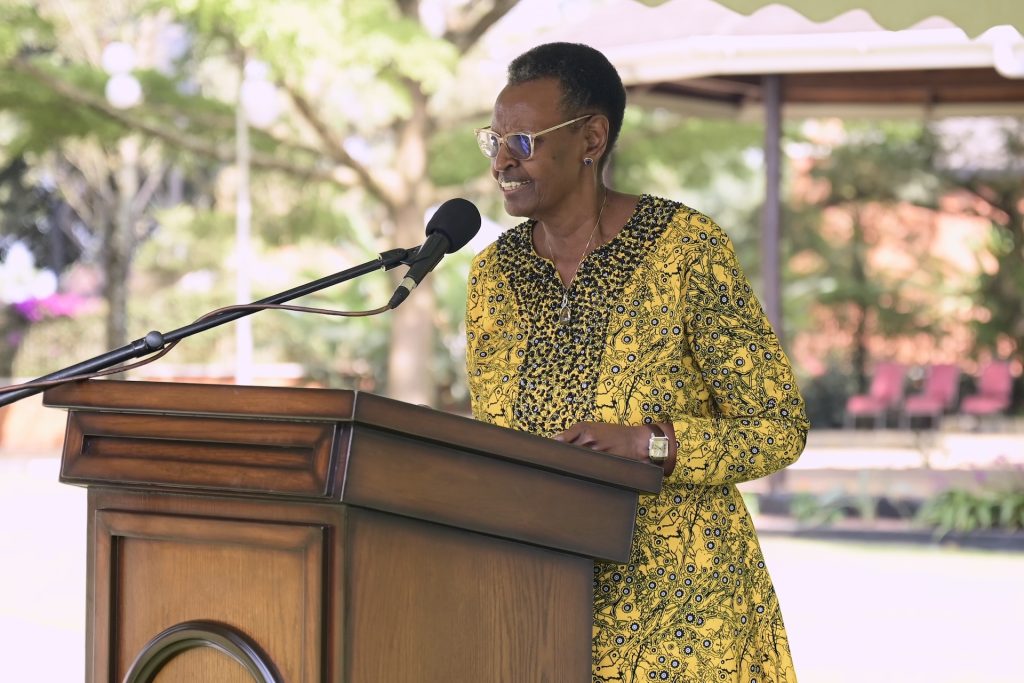Uganda’s step towards nationwide education reform assisted by FCA
A special commission to review Uganda’s education system concluded its findings this week in a nearly five year process to reposition the country’s Education and Sports system to meet the needs and challenges of the 21st century. FCA provided expert support throughout.
ON FEBRUARY 4, 2025, Uganda’s First Lady and Minister of Education and Sports Hon. Janet Museveni officially received the report “Education for Values, Innovation and Transformation,” consisting of findings and recommendations for a new Government White Paper on Education and Sports services in Uganda.
The report, based on regional visits, public hearings and benchmarking visits to Finland, Vietnam, South Korea, Kenya, Ethiopia, Tanzania and Rwanda is made up of 284 recommendations for education reforms. Uganda’s schools were closed for two years during COVID, meaning the report took nearly five years to be completed.

FCA support to Uganda’s education reform
To support the review of education reform, Finn Church Aid (FCA) organised the benchmarking trip to Finland in 2023 for members of the Education Policy Review Commission (EPRC). The delegation, consisting of researchers, educationists, economists, and policy analysts led by Chairperson Hon. Col. (Rtd.) Nuwe Amanya Mushega, visited various Finnish educational institutions to learn from the Finnish education system. The Commission Chair noted that lessons from Finland constitute 80% of the recommendations.
FCA also seconded two Finnish education technical experts to assist with the reforms: Evelyn Ansah Karkkulainen, an education specialist from FinCEED – a Finnish centre of education expertise – and Professor Hannele Niemi, an Education Management Consultant both from FinCEED and part of FCA’s volunteer network Teachers without Borders. Their expertise was instrumental in supporting the commission’s efforts to create a new policy framework for Uganda’s education and sports, replacing the existing Government White Paper from 1992.
During a special meeting held at State House Nakasero in Kampala, the First Lady received the comprehensive report from the Commission team. The event was attended by notable figures, including State Ministers Dr. JC Muyingo (Higher Education), Dr. Joyce Kaducu (Primary Education), and Peter Ogwang (Sports), alongside Permanent Secretary Dr. Kedrace Turyagyenda, other top ministry officials, the EPRC’s Deputy Chairperson Dr. Joseph Muvawala, FCA Uganda Country Director Mr. Wycliffe Nsheka and all ten Commissioners.

Findings of the report
The report highlighted several key challenges within Uganda’s education system. While significant strides have been made in improving access to education, quality remains a substantial challenge requiring immediate attention. Notable findings include:
- Access vs. Quality: Improved access to education across Uganda has been offset by concerns over educational quality, with disparities in standards across regions.
- Teacher Training and Development: Many teachers lack adequate training and professional development opportunities, affecting their ability to deliver high-quality education. Teacher motivation is also an issue, linked to low salaries, poor working conditions, and limited career progression.
- Outdated Curriculum: The current curriculum is outdated, and lacks focus on competence-based learning and skills development.
- Assessment Methods: The reliance on the Primary Leaving Examination (PLE) as the sole assessment method is problematic and does not comprehensively evaluate students’ abilities.
- Funding and Resources: The education sector is underfunded, limiting the availability of necessary resources and infrastructure, with disparities in resource allocation between urban and rural areas.
- Early Childhood Education: Early childhood education is often neglected, despite its critical role in laying the foundation for lifelong learning.
- Administrative and Data Systems: There is a lack of robust administrative and data systems to track educational performance, monitor progress, and inform policy decisions.

Exams replaced with assessments among recommendations
The report presents several comprehensive recommendations to address these challenges.
It emphasises the need to ensure universal access to basic education for all children, regardless of socio-economic background, with a strong emphasis on early childhood education. This foundational stage is critical for building lifelong learning capabilities.
Furthermore, the report suggests implementing curriculum reforms that focus on competence-based learning and fostering collaboration with industries. This approach ensures that students acquire relevant skills that are in demand in the job market, bridging the gap between education and employment.
Additionally, it recommends replacing the Primary Leaving Examination (PLE) with a continuous assessment system, which provides a more comprehensive evaluation of students’ progress and learning outcomes throughout their educational journey.
The report highlights the importance of improving the quality of education at all levels. This involves enhancing teacher training and development to ensure educators are well-equipped to deliver high-quality education. Increasing sector funding is also essential to provide the necessary resources and infrastructure for effective teaching and learning.
Other recommendations include developing a robust administrative and survey data system to track educational performance, identify areas needing improvement, and make informed policy decisions based on evidence. By implementing these recommendations, Uganda aims to create an education system that is both accessible and of high quality, ultimately contributing to the nation’s transformation and development goals.

First Lady’s gratitude to FCA
The First Lady, expressed her gratitude for FCA’s contributions towards Uganda’s education reforms.
“My special thanks go to Finn Church Aid, represented here today by their Country Director, Mr. Wycliffe Nsheka, for funding a benchmarking visit of the Commission to Finland and providing technical support through Professor Hannele, who flew in and worked remotely to support the Commission. Finland, as we all know, is a country that is well known for its excellent education system, and so we cannot thank the Government and the people of Finland, together with Finn Church Aid, enough for their contribution.”
Wycliffe Nsheka, the Country Director of Finn Church Aid Uganda, underscored FCA’s commitment to Uganda’s educational transformation. He stated, “Education is the foundation of sustainable development, and FCA is honored to be part of this important journey. We believe that through collaboration, technical expertise, and shared experiences, we can help shape an education system that empowers Ugandan children with the skills they need for a brighter future.”
Next steps towards education reform
A team will be constituted to study and analyze the proposed recommendations. This team will draft a Government White Paper for Education and Sports, detailing policy options based on the report’s findings. Once the draft is prepared, it will be presented to the Cabinet for consideration. Upon approval by the Cabinet, the new Government White Paper for Education and Sports will be officially adopted. This document will guide the implementation of the recommended policy changes and reforms, aiming to improve the quality and accessibility of education and sports services in Uganda and align with Vision 2040’s national transformation and prosperity goals.
Text: Kadlah Nabakembo
Photos: Uganda Ministry Of Education and Sports